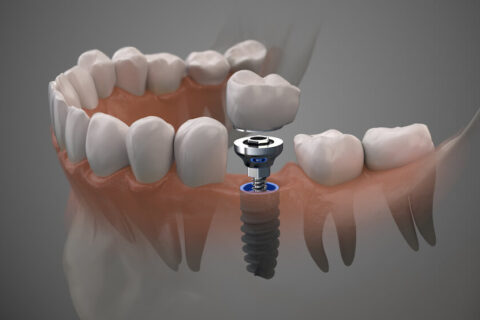The Causes of Gum Recession
Many people overlook gum recession. This problem often develops without pain, which can cause some individuals to minimize its impact on their oral health. However, gum recession is one of the most common warning signs of periodontal disease. Without early gum treatment, advanced periodontitis can lead to tooth loss. So if you are at risk for gum recession, or you have already noticed its presence, talk to a dentist in Denver about what can be done to stop it.
Oral Hygiene
A consistent oral hygiene routine is one of the best ways to keep your teeth clean and gums free of periodontal disease. Did you know, though, that your brushing habits might be contributing to your gum recession? Gum tissue can normally withstand the abrasion that comes with the brushing process, yet overly harsh brushing habits can actually promote receding gums. Using a toothbrush with soft bristles is one way to help. Making sure that your brushing technique is not excessively aggressive is likewise important.
Smoking
Even with the most diligent brushing and flossing techniques, smoking can undo your efforts to prevent gum recession. Tobacco products contain ingredients that can irritate your gums. Gum inflammation can then lead to the detachment of the gums from tooth surfaces. To ensure the future health of your gums, make a commitment now to stop using all tobacco products. Your dentist may be able to help with recommendations of smoking cessation programs in your neighborhood.
Gum Disease
Perhaps you have never picked up a cigarette or bag of chewing tobacco. Though the avoidance of tobacco products can prove instrumental in protecting your teeth and gum tissue from their negative side effects, you may still be vulnerable to gum recession. Gum disease is a concern with which millions of Americans contend. Just as overly hard oral hygiene habits can lead to gum recession, so too can erratic or poor dental maintenance. To rid your teeth of the plaque that can cause gum disease, you should brush and floss at least twice a day. If you fail to do so, it can lead to the buildup of sticky bacterial acids that may irritate your gums and cause them to recede.



